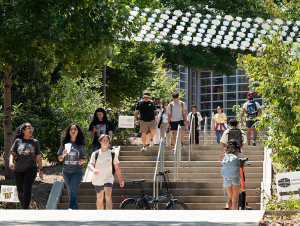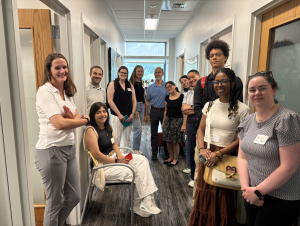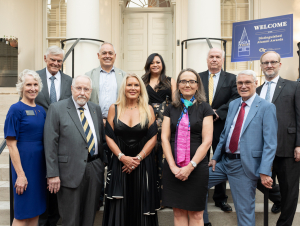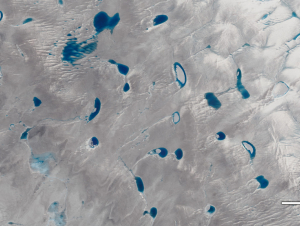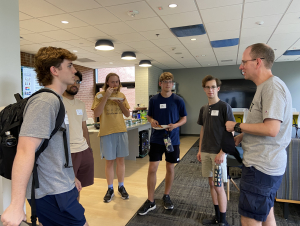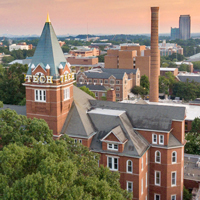Latest News
The new bachelor’s degree brings together essential elements of both mathematics and computing training and includes the applications of mathematical theories relevant to computing and data, as well as the theoretical problems and real-world challenges that modern computing addresses.
The inaugural cohort of Georgia Tech’s Ph.D. program in Neuroscience and Neurotechnology includes both transfers from other Georgia Tech graduate programs and students new to the Institute.
The College of Sciences’ community came together to celebrate the inaugural Distinguished Alumni Awards, recognizing the diverse achievements and inspiring journeys of eight alumni.
Simple equations are revealing how topography controls supraglacial lake size in Antarctica — and why it matters for climate predictions.
The undergraduate astrophysics program introduces students to the fundamental physical processes and laws that govern the cosmos. This foundational curriculum is complemented by training in computational and data analysis techniques.
Georgia Tech researchers analyze seasonal differences of SO₂ and sulfate concentrations in the atmosphere over decades to determine the long-term impact of sustained air quality control efforts.


